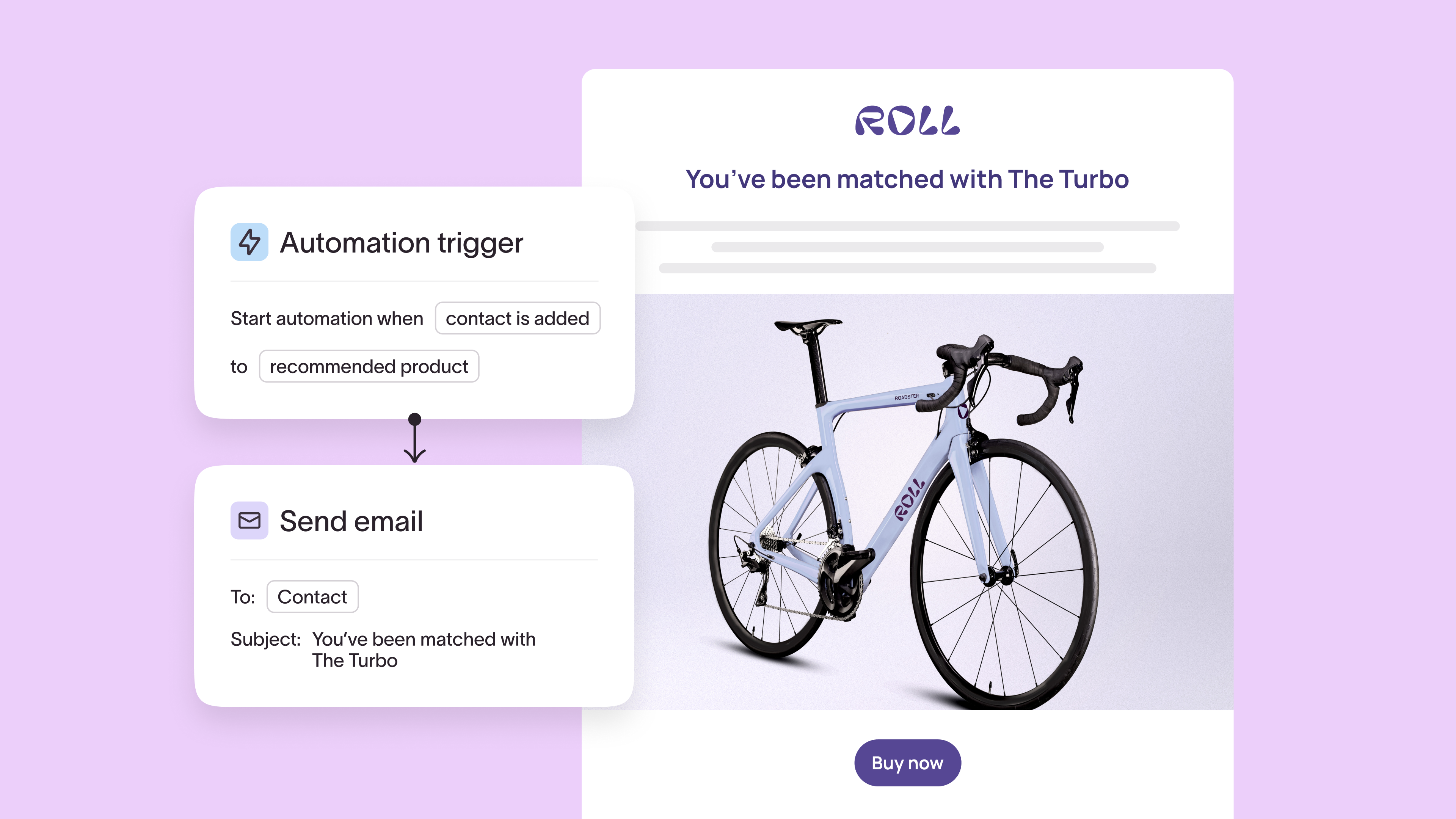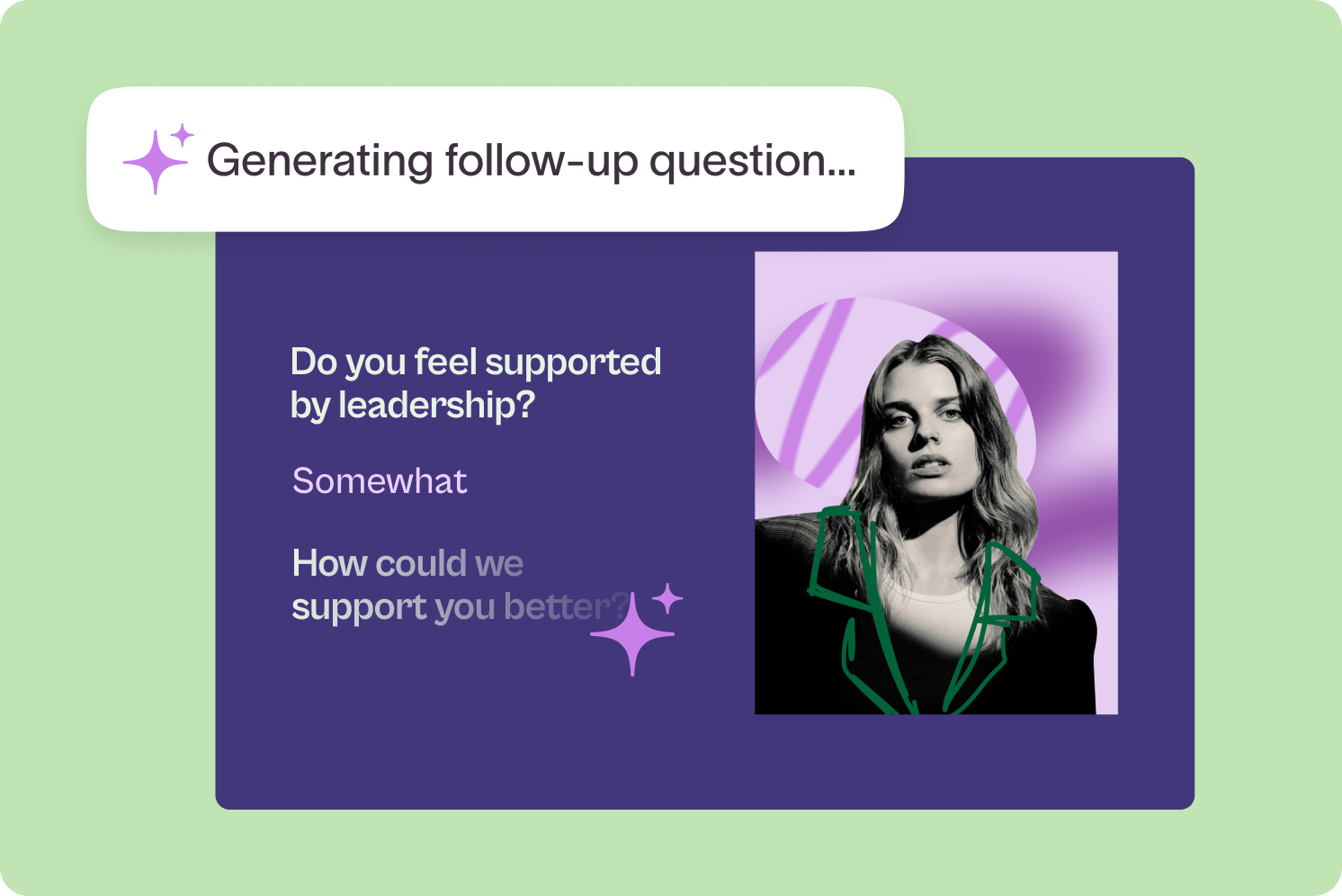The power of quizzes: How e-commerce brands can win big with personalization
Product recommendation quizzes are fun for shoppers, but they’re an even more powerful tool for marketing and personalization for e-commerce small businesses. See how to leverage these quizzes for data collection, personalization, and more.

Contents
Thanks to almost unlimited access to data, “personalization” has shifted over the past decade—along with customer expectations. Instead of simply sending emails with your customers’ first names or sending a birthday discount, personalization is now about the experience.
Are you giving your customers a personalized experience? Not sure? The brands that have fine-tuned their personalization strategies and are winning big with their customers are the ones:
- Sending on-point product recommendations
- Sharing content tailored to their customers’ unique preferences
- Providing more personalized and better customer support
- Communicating based on stated customer preferences
And it’s not just the big brands—small businesses can personalize experiences, too. While there are many different ways to approach personalization for small businesses, we’re looking at how you can use product recommendation quizzes to give your customers a more personalized experience with your brand.
Personalization doesn't happen without data
Whether you're conducting market research before launching a new product or trying to target the exact right audience for your ad campaign, you need customer data.
And remember—data is just information about your customers, like their name, purchase history, or communication preferences. It's the backbone of successful personalization strategies, so use it to create truly personalized customer experiences.
Benefits of personalization for small businesses
There are countless benefits of personalization for both big-box brands and smaller e-commerce businesses. From increasing customer loyalty through emotional connections with your customers to revenue boosts, here are a few reasons personalization should top your list of marketing strategies to execute now:
- Above all else, your customers expect you to personalize—you need to deliver on those expectations
- According to McKinsey's Next in Personalization consumer study, 78% of consumers are more likely to be repeat buyers from brands that personalize
- They're also 78% more likely to refer people to your brand if you use personalization
- McKinsey found that businesses that grow faster get 40% more revenue from personalization
- 73% of customers say they prefer to do business with brands that personalize their emails
Personalization strategies can also help you create a better customer experience, which contributes to increased revenue, customer retention, and much more.
So, how do you start deploying personalization strategies and reaping all the benefits? One way is through product recommendation quizzes that yield insightful data and give customers what they expect from e-commerce brands these days.
What is an e-commerce product recommendation quiz?
You create products customers love and sell them online. To help customers decide which product best suits their needs, you use an interactive quiz that matches them with one of your products. That's an e-commerce product recommendation quiz.
Product recommendation quizzes are fun for customers—especially if you get the product matching right—but they're also powerful tools for marketing your small business.
Here are a few ways these quizzes contribute to marketing personalization strategies:
- They reveal zero-party data (ZPD) that provides insights about your customers, allowing you to create more relevant marketing messages, product recommendations, and personalized experiences.
- Product recommendation quizzes help you more accurately segment your audience based on the information they share with you in the quiz, including the products they purchase from your quiz. Segmentation helps personalize emails based on stated preferences, interests, and more.
E-commerce product recommendation quizzes vs. general quizzes
Customer engagement quizzes, whether product-specific or general, are interactive tools many small businesses use to engage with their audience. But they're not the same.
E-commerce brands typically use product recommendation quizzes to help shoppers find their product match—the goal is more sales-focused. They also gather vital information that helps small businesses deliver personalized experiences, product recommendations, and content.
Small businesses are also using quizzes as entertainment for their audience, where the goal is centered more around engagement. Take our Grammy Awards quiz. It encouraged form takers to predict the winners. You can also test your customers' knowledge with trivia quizzes, like this Stranger Things quiz we can't get enough of.
But perhaps the biggest difference between product recommendation and general quizzes is the outcome. A product quiz will lead to a specific recommendation, while a general quiz might show your score or reveal your personality type.
Benefits of quizzes in e-commerce and small businesses
The most obvious benefit of product recommendation quizzes is that they direct customers toward a purchase by suggesting the best product for their needs. But they have countless other benefits, like personalization, increased customer loyalty, and data collection that doesn't creep customers out.
Effortless data collection
E-commerce product recommendation quizzes are an effective tool for gathering crucial zero-party data, straight from your customers. Not only do they deliver basic data like someone's name and location, but they also give you insights into:
- Preferences
- Current product usage
- Pain points
- What customers are looking for (new features or products)
- Demographics
You can then leverage all this data to more accurately segment your audience, personalize future experiences, and build trust through perfectly matched product recommendations.
The best part? Your customers are sharing this data willingly (and intentionally), so it feels non-intrusive and more like a conversation between your e-commerce brand and your customers.
Customer engagement that converts
One of the biggest benefits of quizzes in e-commerce is their ability to guide shoppers toward a purchase, for both those considering your brand and existing customers.
For shoppers debating a purchase, your product recommendation quiz can be the deciding factor. By matching soon-to-be customers to the perfect product based on their answers in the quiz, you take the guesswork out of which product they should buy, making it a no-brainer to take the final step—hitting the "Add to cart" button.
But what about your current customers? Well, customer engagement quizzes, like product recommendations, can be a tool for re-engagement.
Let's say you have a haircare brand. You can send the quiz to the "frizzy hair" segment of your email list along with tips on how to care for dry hair to promote your new hair moisturizing products to the right audience.
Take a look at a few other ways these e-commerce quizzes can turn customer engagement into dollars:
- They're fun to take, so they easily attract potential customers and help them make more informed purchase decisions.
- Product recommendation quizzes turn casual scrolling on product pages into something interactive that creates a better shopping experience and builds a stronger brand-customer connection.
- These customer engagement quizzes require participation—the more engaged your audience is, the more likely they are to stay on your site, which can boost conversion rates.
- Matching customers with products that best meet their needs builds trust between your small business and customers, increasing the likelihood of a sale.
Smart segmentation and enhanced personalization
Segmentation is all about grouping individuals based on commonalities, like wants and needs or location and interests. It's also a great starting point for personalization. And product recommendation quizzes can help you segment your audience by collecting zero-party data.
By enriching existing data with the ZPD you get from quizzes, you can group your audience into smaller sub-groups (segments) that'll help personalize everything from marketing messages to products and tailored content.
And, as we already know, customers expect personalization. By doing so, you're adding to your customer experience (another factor in purchase decisions).
How to add product recommendation quizzes to your personalization strategies
Personalization strategies involve tailoring marketing and communications, content, and the customer journey for each customer. And they always start with data... then segmentation.
Remember, the benefits of segmentation are only as good as the data—if you don't ask the right questions, you won't get the data you need to group your customers. Once you've created a product recommendation quiz, use that data to segment your audience and personalize their experience based on their segment.
Let's say most of your customers are in their early 20s and very active. But some are yoga enthusiasts while others are avid hikers. By segmenting them into two distinct audiences, your e-commerce activewear brand can recommend more relevant products, refine marketing, and suggest content that will align with their interests.
E-commerce product recommendation quiz results for personalization
Think of your product recommendation quiz as a starting point. While some shoppers may purchase your product straight from the quiz, many more will require some nurturing. You can do that through personalization—from reminding them of their perfect product match to tailoring marketing.
Here are a few ways you can personalize every step of the journey using the results of a customer's product recommendation quiz:
- Recommend products in the future. If quiz results reveal that a customer's only interested in—and buys—hiking boots, you can share hiking-related blog posts and recommend new boots as you release them.
- Leverage retargeting ads. Use quiz results to create retargeting ad campaigns on social media that showcase the product recommendations from your quiz and keep you top of mind.
- Show up at every touchpoint. Dynamically display a customer's unique product recommendations across every touchpoint, from landing pages to emails to paid ads.
- Get in their inbox. Use email marketing campaigns to send emails that feature those products and tailored content related to the specific products you recommended.
- Personalize your messaging. Whether it's through ads or emails, use quiz results to tailor future marketing campaigns. You can do this by refining messaging and emailing customers about only the products they're interested in and content related to those products.
Let's say you have a lip product small business. You sell lipstick, lip oil, lip stains, and lip liners on your e-commerce site. Some of your customers' quiz results show that they're only interested in lipstick.
So you start sending emails about how to apply lipstick, featured lipsticks, and include blog posts about different lipstick combinations, plus retargeting ads that showcase their recommended products. You've created a personalized journey by sharing relevant content, focusing on the right products, and using quiz results to segment your audience.
Start personalizing—create your product recommendation quiz
There are countless benefits of quizzes in e-commerce, like increased customer loyalty and revenue, enhanced personalization, and an overall better customer experience.
They're powerful tools for small businesses and e-commerce brands looking to engage customers and increase personalization. Sound like you? Try Typeform and create your first (of many) product recommendation quiz. They're easy to create, design, and launch, so you can start collecting data ASAP.
Liked that? Check these out:

Opinions and Expertise
Customer flows, not funnels: Why marketers are rethinking how customers move
Marketing funnels assume customers move in straight lines—but they don't. Customer flows use automated workflows to build momentum, with one action triggering the next. See how Typeform Contacts & Automations helps you meet customers where they are, automatically.
Read more


